
In a world where so much needs to change, Sojourners’ Mitchell Atencio and Josiah R. Daniels interview people who have faith in a new future and are working toward repair.
This series features interviews with artists, activists, authors, scholars, contemplatives, and others who are willing to name the ways our world and churches are broken — and how we can all work to build a better future.
Subscribe to our newsletter: You'll be the first to know when new interviews are published, plus you'll get bonus material that we won’t publish online.
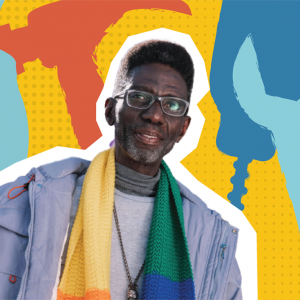
I was listening to BBC’s Focus on Africa this summer when I first heard Dausab interviewed about his role in the landmark court case to overturn Namibia’s anti-LGBTQ+ legislation. In a throw-away line, the host indicated that Dausab was a Christian — and Dausab didn’t equivocate.
“As a born-again Christian, I always go back to Jesus …,” Dausab told the host.
Who was this born-again Christian that brought down Namibia’s sodomy laws? I wanted to meet this guy.
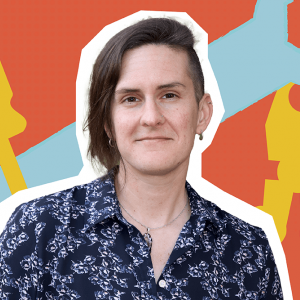
Two queer pastors, Anna Blaedel and M Jade Kaiser, were having dinner together in 2017, when they posed a question to each other in the spirit of meaningful fun: What would it be like if they could create a public space for conversations about and liturgical resources for transformation, at the outer margins of Christianity and beyond?
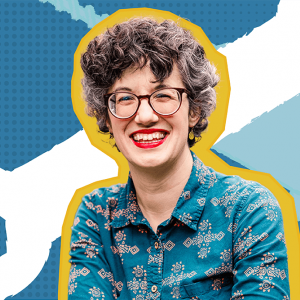
In her forthcoming book, Films for All Seasons: Experiencing the Church Year at the Movies, Abby Olcese guides the church through the liturgical season via spiritual reflection on movies. Rather than tell readers how a movie is to be interpreted, Olcese guides participants on watching, considering, and discussing 27 films, each aligned with the liturgical calendar.
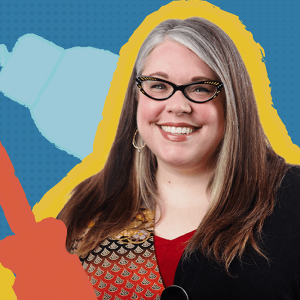
Travel back in time with me to the early 2000s: Celebrities were openly fat-shamed in tabloids, and supermarkets were overrun by all things “low” — low-calorie, low-fat, low-carb, low-sodium, or low-sugar. Diets like Atkins, paleo, keto, raw foods, and juice cleanses abounded. TV shows like “The Biggest Loser” and “My 600-lb Life” were used to paint fat people as lazy, undisciplined, and disgusting.
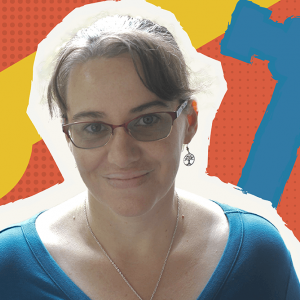
Over the course of my life, I have been part of political communities that placed high emphasis on the perceived future of hypothetical children.
On the Right, “think of the children” is at the forefront of the movements to end abortion and diminish protections for LGBTQ+ people. On the Left, you’ll hear the same rally cry for movements that aim to reduce climate change or increase gun control. The invocation of children holds serious power. It makes us step outside our own self-focused considerations and instead wonder about a group with minimal power and autonomy.
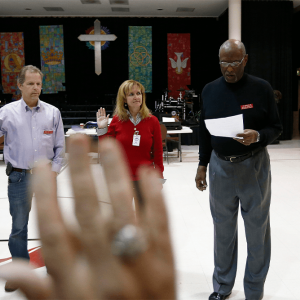
It goes without saying that we’ve got plenty of dread to spare this year. Since President Joe Biden won the presidency in 2020, former President Donald Trump and his allies have falsely claimed that the election was rigged. Millions of Americans agree. Meanwhile, many other Americans fear how far Trump could take his authoritarian impulses in a second term. As our political culture becomes more tightly wound, the nuts and bolts of our democracy seem to be coming loose. For the average citizen, it can be hard to verify every claim we see circulated in partisan media or online. Despite election law being clear that a party can choose its nominee at convention, for example, many Republicans claimed it was “too late” for Biden to step down from his reelection campaign.
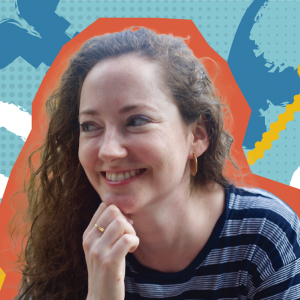
In the queer, young adult novel She Drives Me Crazy, author Kelly Quindlen employs a couple of my favorite romance tropes: A fake-dating scenario and an enemies-to-lovers story arc. But when I first read the novel a few years back, I was also delighted by all the plotlines and character traits I’d never encountered in a sapphic YA romance: The two main characters — high schoolers Scottie (star of the girls’ basketball team) and Irene (captain of the cheerleading squad) — are both Catholic, and, most significantly, their Catholicism is not in conflict with their sexuality. Both Scottie and Irene’s parents are affirming; their queerness is a nonissue for their families and their church.

“To me being Christian means f---ing s--- up,” Layshia Clarendon told ESPN’s Katie Barnes. “That’s what Jesus came to do. It means disrupting and fighting for the most marginalized people.” During the 2020 WNBA season, they helped lead players in protesting police violence against Breonna Taylor and other Black women. Clarendon helped launch the WNBA’s Social Justice Council, alongside players like Sydney Colson, Breanna Stewart, Tierra Ruffin-Pratt, A’ja Wilson, and Satou Sabally. Clarendon signed on to the Athletes for Ceasefire in Gaza, and they launched a foundation to provide grants that help transgender people access health care and other services.

In recent years, the work of librarians has been sucked into the center of the “culture wars” as fascist and authoritarian movements in the U.S. attempt to censor materials, especially about queerness and racial justice. Meanwhile, justice movements have recognized how libraries are a shining example of public-funded community goods.
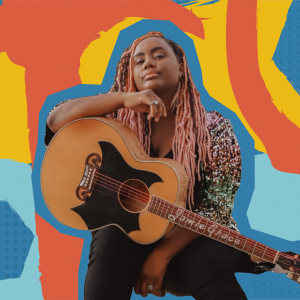
As I remember it, I was first introduced to Jamie Grace’s career while listening to a Christian radio show in 2011. At the time, she was a 19-year-old college student majoring in child and youth development, recently signed to a major Contemporary Christian Music (CCM) label, and was less than a year away from being nominated for the 2012 Grammy Award for Contemporary Christian Music Song. She was a Black woman in an industry largely made up of white men; she was open about her diagnoses of Tourette syndrome, attention-deficit/hyperactivity disorder, and obsessive-compulsive disorder at a time when I wasn’t aware of many people who were; and she was a very skilled guitar player, songwriter, and singer. As such, it seemed obvious that she had a bright future in an industry that needed new energy.
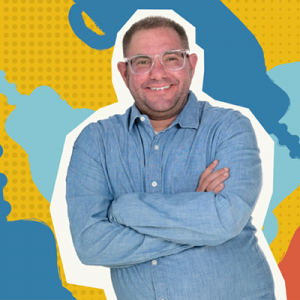
By now, you may know that men, broadly speaking, are suffering. Despite the structure of a patriarchal society where men still reap various financial and social benefits, men are regularly facing disparate outcomes on a wide range of measures. Nearly four times as many men as women died by suicide in the U.S., 1 in 7 men report having no close friends, and men see disparate outcomes in mental health, premature deaths, and education.
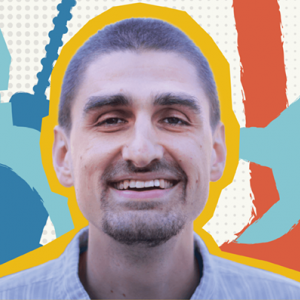
Over nearly three decades, Jonathan Wilson-Hartgrove — a self-described “preacher, author, and community builder” — has often played Baruch to Rev. William J. Barber II’s Jeremiah. Through efforts like the Moral Mondays movement and the Poor People’s Campaign, the pair has worked to articulate what they describe as a “Third Reconstruction,” reflected in an agenda that unites the nation’s poor to confront “the interlocking injustices of systemic racism, poverty, ecological devastation.”
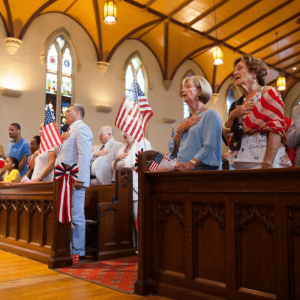
At the beginning of their book, Baptizing America, Brian Kaylor and Beau Underwood return to the Christian nationalist display at the U.S. Capitol on Jan. 6, 2022. No, that’s not a typo.
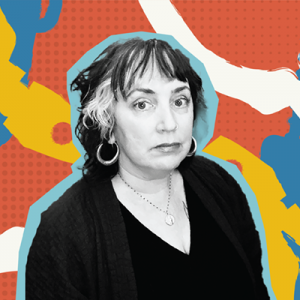
"A lot of psychologists, sociologists, and theologians talk about the fact that forgiveness is really for the forgiver and not the person being forgiven. But that’s not true in a lot of our American narratives [where] forgiveness is actually for the person who did the wrong, so they can be “healed.” We’ve lost the victims in that conversation."
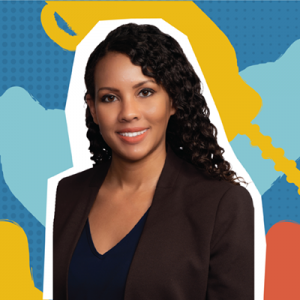
In this week’s conversation with writer and novelist Alessandra Harris, we spoke about her love of writing and when she first realized she wanted to be a writer. She was in fourth grade and the story she had written about a genie was chosen by her teacher to receive a prize. When you’re a kid, there’s just something extremely compelling about the fantasy of encountering a genie who will grant you wishes galore. Of course, as a kid, our wishes are rather innocent and self-centered: “I wish I could meet Michael Jordan,” “I wish the Chicago Bulls could win one more championship,” and, last but not least, “I wish for more wishes.” As you grow up, you realize genies aren’t real but that doesn’t prevent you from imagining what you’d wish for if you had three, two, or even a single wish. And as we age, our wishes tend to transform into a single hope for something innocent and unselfish.
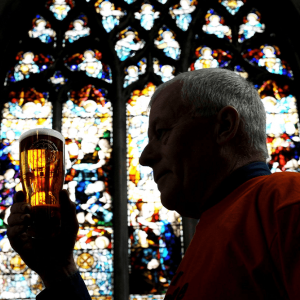
Last week, the University of Michigan announced that it would begin selling alcohol at its football games.
For decades, alcohol sales had been largely limited at college football events, but in 2019 the Southeastern Conference began allowing its schools to sell alcohol at games. Now, more than 80 percent of the top football schools sell alcohol on game day.
In the U.S. church, opinions on alcohol seem more polarized than politics. On the one hand, many conservative and fundamentalist faith traditions treat all alcohol consumption as a sin, some going so far as to suggest that Jesus turned water into nonalcoholic wine. On the other, progressive and moderate faith traditions incorporate alcohol into church with events like beer-and-hymns, theology-on-tap, and “pub churches.”
Ofer Cassif, a member of Israel's parliament, speaks out on the Oct. 7 Hamas attack and Israel’s response.

Ofer Cassif, whose grandparents came to Israel from Poland in 1934 as part of the Zionist movement, is a secular Israeli Marxist and a leading voice against the war in Gaza. During the first Palestinian Intifada in 1987, Cassif refused Israeli military service in the Occupied Territories and was incarcerated in military prison. In 2019, he was elected to Israel’s parliament as the only Jewish member of the Arab-majority Hadash-Ta’al party. In January, Cassif publicly supported South Africa’s petition to the International Court of Justice (ICJ) to investigate Israel for violation of the 1948 Genocide Convention in its war on Gaza. In February, some parliament members tried — unsuccessfully — to impeach him.
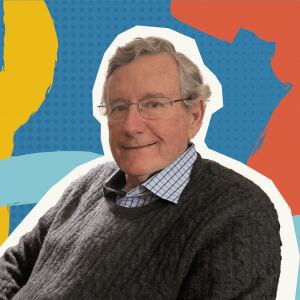
Anyone who has spent even a second in a prison knows it’s hell. Growing up in church, I noticed people who participated in the church’s prison ministry were both respected and feared. Respected because they were doing what the writer of Hebrews admonishes believers to do regarding those in chains: Remember them as though you were in prison with them (13:3). But they were feared because many of them had actually been in prison. Rather than the prison system or the criminal legal system being classified as barbaric, it was the prisoners who were typically understood to be barbarians.
Joe Ingle has spent a lot of time in prison. Ingle is a writer and death row minister who has been active in prison ministry since the ’70s. A native of North Carolina and a graduate of Union Theological Seminary, Ingle has dedicated his life to being present with and advocating for the 1.9 million people incarcerated in the U.S., especially the more than 2,300 incarcerated people on death row.
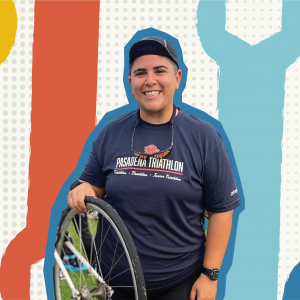
Only 1 in 4 adults play sports each year, according to a 2015 study from NPR, the Robert Wood Johnson Foundation, and Harvard University’s T.H. Chan School of Public Health. This is despite nearly three in four respondents reporting playing as kids, and a majority of adults saying sports improved their mental and physical health ... Ashley Lynn Hengst sees opportunities for the church to help decrease those disparities and build space for more people of all ages to play sports. Hengst serves in pastoral care at All Saints Church in Pasadena, Calif., after a decade working for the Y in youth development.

Brenda Salter McNeil is an ordained minister in the Evangelical Covenant Church, associate professor of reconciliation studies at Seattle Pacific University, and the author of multiple books on the topic of racial reconciliation. McNeil is acutely aware of critical attitudes toward racial reconciliation and is seeking to emphasize the importance of reparations and intersectionality in her new book, Empowered to Repair. I sat down with McNeil to talk about reconciliation, Obama, and Black support for former president Donald J. Trump.
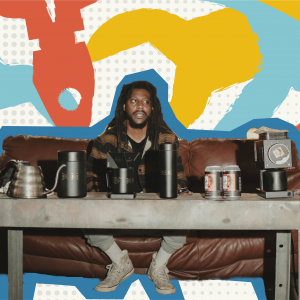
Every few months, a headline flashes across my news feed: “Climate change could destroy the coffee industry,” or something similar.
Even as a regular coffee drinker, what concerns me isn’t the change to my morning cup, it’s the lives and livelihoods of the farmers who plant, grow, cultivate, and prepare my coffee beans. The majority of coffee is grown in the global South, which is alsobearing the brunt of climate change. Meanwhile, a majority of the world’s carbon dioxide emissions also come from the global North.

If you’re the type of person who discusses politics online, you’re likely to have heard of Godwin’s law. In 1990, Mike Godwin, a First Amendment lawyer, invented this rule to address a common occurrence: The longer online debate drags on, the more likely someone commits the fallacy of reductio ad Hitlerum — i.e., the comparison of someone or something to Adolf Hitler or the Nazis.
Invoking Nazis, as Godwin suggests, is a lazy way of ending a debate. I also think it’s usually motivated by a shallow understanding of history and an insensitivity toward Holocaust victims.
But there’s gotta be times when referencing the Nazis is warranted, right? I’ve been thinking about this a lot lately as U.S. politics continues down the path of polarization and a segment of Christians unabashedly preach a message of domination. We need a sharper critique of Christian nationalism and the Republican presidential candidate Donald J. Trump that’s deeper than simply labeling the former group as “Nazis” and the latter individual “Hitler.” But where do we begin?

Reverend Christopher Carter is a virtue ethicist, commissioned elder in the United Methodist Church, and professor of theology. He has spent much of his professional and personal life learning to better the treatment of animals as part of an integrated approach to justice for all. Carter, the author of The Spirit of Soul Food: Race, Faith, and Food Justice, defines his work as a practice of “Black veganism,” which “forces us to examine how the language of animality and ‘animal characteristics’ has been a tool used to justify the oppression of any being who deviates, by species, race, or behavior, from Western Christian anthropological norms.”
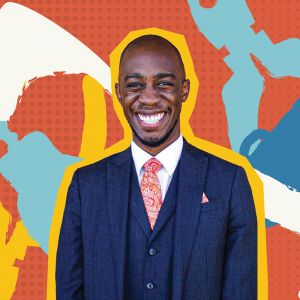
I was in high school, visiting my grandparents’ church in Peru, Ind., and the theme for the Sunday school class was “money.” The teacher was quick to bring up a verse that has always sounded like it would be a better fit in Benjamin Franklin’s Poor Richard’s Almanack than the Bible. “The love of money is the root of all evil,” the teacher said, summarizing and abbreviating 1 Timothy 6:10. “It’s not that money itself is evil. Objects, in and of themselves, cannot be evil,” he explained. “It’s a matter of the heart.” That logic sat weirdly with me and so I raised my hand to respond. “Don’t we believe that idols are objects and that they are evil? Also, doesn’t the Bible teach us to resist temptation? So wouldn’t it make sense to resist the temptation of money to avoid all the evil that comes with it?”
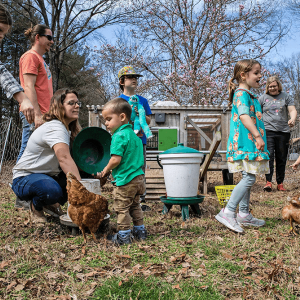
According to a study by The Washington Post, in states where data was available, homeschool students rose by 51 percent between 2017 and 2023. By comparison, enrollment in private schools rose by only 7 percent. As a homeschool alum, these statistics brought me mixed feelings. I had a beautiful, generous, enriching experience being homeschooled from fifth through 12th grade, but I know others who had the complete opposite experience. I fear that many Americans are beginning to homeschool without knowing that Far-Right, fundamentalist Christians lead most of the networks that offer resources to homeschooling families.
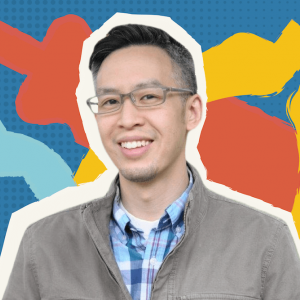
I originally met educator and grassroots theologian David Leong in 2016 after I emailed him on a whim, telling him I was coming to visit friends in Seattle and that I’d like to meet him for coffee. I had just read an advanced copy of his book Race and Place, about churches in urban contexts, and was impressed by the conversational tone it took when addressing issues like race, class, and gentrification.
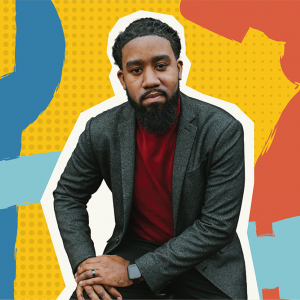
I am sick of the way many white Christians talk about “the Black church.” My frustration is nothing novel: Some white Christians are desperate to ask Black Christians to justify their institutions and concerns. Other white Christians romanticize Black institutions, flattening complexities and nuances that are natural to any multifaceted group. And if I’m sick of it, I can only imagine how Black Christians feel. So, when I sat down with Tyler Burns, pastor of Rise City Church in Pensacola, Fla., and president of The Witness: A Black Christian Collective, I told him explicitly that I would try not to subject him to that sort of conversation. In his role at The Witness, Burns helps lead an organization that hosts writing, conferences, podcasts, and more centered on the Black Christian experience. He co-hosts the flagship podcast, Pass the Mic, which recently celebrated its 10th anniversary.
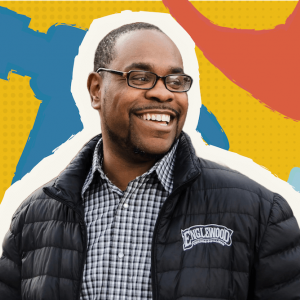
Jonathan Brooks is now the lead pastor of Lawndale Christian Community Church in the Chicago neighborhood of North Lawndale. The major theological conviction of LCCC is to love God and love the neighborhood, which is predominantly Black and has experienced years of government disinvestment. The way the church community puts into practice its theological convictions is by working with neighbors to improve the material circumstances of all who live there.
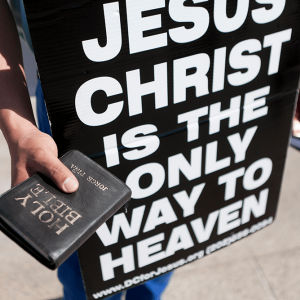
Was Robert E. Lee, the infamous confederate general who went to war to defend slaveocracy in the South, a Christian? The answer to this question may seem obvious: Yes. Lee was an Episcopalian who was called a “humble, earnest Christian” by a minister who was his contemporary. But some Christians may recoil at the idea that someone they see as clearly at odds with Jesus’ call to “release the captives,” would be considered a Christian.
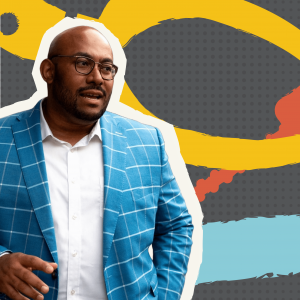
I love documentaries. I try to watch a minimum of one per week. I am especially drawn to documentaries like Born in Synanon — a documentary about a rehab community that eventually became a cult — because it wrestles with questions around race and religion. These two subjects are endlessly fascinating to me.
So, when I heard about Faith in Blackness, I knew I would have to see it. In October 2023, one of the executive producers, Josué Perea, invited me to a screening at the University of Washington. The documentary explores the relationship between AfroLatine spirituality and how that spirituality shapes a person’s identity and understanding of the divine.
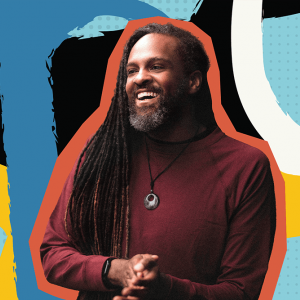
I’ve noticed that a lot of the resources that exist for facilitating relationships across disagreement are geared toward the non-affirming: “How should Christian parents respond if one of their children comes out as gay?” “Can Christian parents point their gay children to Jesus?” “Responding to a ‘Gay Christian’ in the Family.” And while many LGBTQ+ people don’t want close relationship with non-affirming family, those of us who do want those relationships, don’t want to sacrifice our safety. Darren Calhoun has spent two decades working to build bridges that protect the dignity and safety of all parties, including LGBTQ+ people and their non-affirming community.
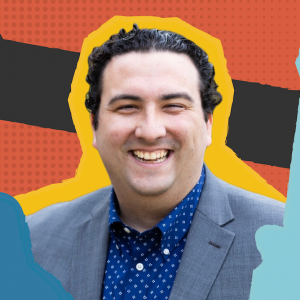
Michael Wear’s book makes the argument that for Christians to engage in politics responsibly and approach political conversations openly, they must focus on spiritual formation, discipleship, and centering Christ in all that they do. Politics “shapes us spiritually,” Wear writes in the book. And he hopes Christians will place their political action under the authority of Christian discipleship.

While a number of anti-death penalty advocates rightly highlight the exonerations, Elizabeth Bruenig prefers writing about the “confessed and admittedly guilty … since we all already agree the innocent shouldn’t be put to death.”
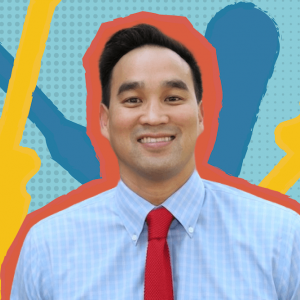
Tran won’t settle for simply critiquing racial capitalism or popular anti-racist enterprises that steer clear of economics. Tran believes that Christian theology offers an alternative story to the economy of racial capitalism, an alternative that finds its locus in what he describes as the “divine economy.”

The Cagles are co-organizers of Jubilee House, a nonprofit ministry based in Parrish with multiple initiatives, including operating a free store and free pantry, passing out free naloxone to combat the opioid crisis, and reclaiming an old football field as a farm. Together, they work to sow a type of Christianity that would revitalize the literal and metaphorical soil of the Bible Belt.

“Something I often heard was that ‘there’s not enough Black Catholics.’ [That] the numbers of Black Catholics are not big enough to justify doing a survey into this community. But that was in complete contradiction with what I was seeing when I was at these rallies and with people who were engaging with the Black Lives Matter movement.”
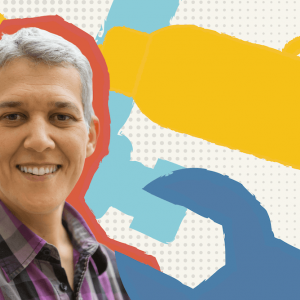
“I have friends and family who lost people in the attack by Hamas on Oct. 7. I have colleagues and friends in Gaza who were bombed by the Israeli attack. I go to demonstrations against the genocide in Gaza because I want to be with others that shout and call for the immediate stop of this unforgivable crime. And I cannot chant all the chants in those demonstrations. I chant some of them.”
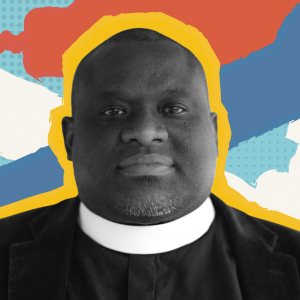
When I was living on the West Side of Chicago, friends and family would often say that they couldn’t comprehend why I would want to live in such a “dangerous” area. The exchange would usually go something like the following: “I can’t imagine why you’d want to live in Chicago, considering all the gun violence.” “Are you worried about me being shot by the police?” “Well, no. The criminals are the ones who are shooting people.” “The police shoot people too. And there’s a reason the ‘criminals’ are resorting to violence.”
I would then go on to explain the antecedents to Chicago’s gun violence: racial segregation and systemic disinvestment. Beginning in the 1950s and into the ’70s, white Chicagoans fled the South and West Sides because they couldn’t imagine being neighbors with Black people. Because of this, these areas became predominantly Black, and the city has refused to invest resources into these neighborhoods to reverse their poor conditions. The South and West Sides are still suffering from disinvestment today, and this disinvestment is a major contributor to gun violence.
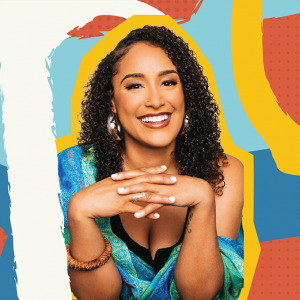
Honestly, I never thought much about Israel before college. Then, during my sophomore year, a prominent New Testament studies scholar had been invited to speak on campus; after it came to light that they were openly critical of the state of Israel, they were summarily disinvited. A few other students and I were still able to meet with the scholar, and we were shocked by the language they were using to describe the conditions in Israel for the Palestinians: “Second-class citizens,” “genocide,” and “apartheid” were the terms that struck me most.
“It can’t be as bad as what Black people have faced in the United States or what they faced in South Africa,” I remember saying to the scholar. “Go and see,” they admonished. And so, one year later, that’s exactly what I did.
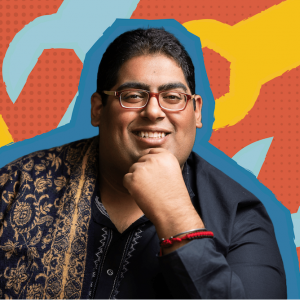
As we officially enter the season of primaries, advertising campaigns, and debates, faith communities are as central to the election process as they ever have been. Even with the nationwide decline in religiosity and trust in institutions, religious leaders and congregations are central community builders for millions of people in the U.S.
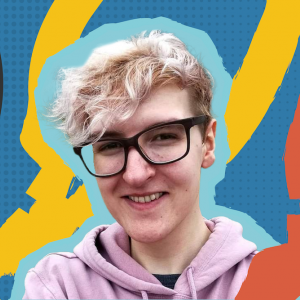
There is not much that Rebecca Jane Morgan appreciates about Pat Robertson, the right-wing evangelical pastor and political figure who died in June. But one moment from his life sticks out in her mind. In 2013, Robertson was asked on-air about gender affirmation surgeries (referred to as a “sex-change” surgery). The usually hardline conservative offered a nuanced answer. “I don’t think there’s any sin associated with that,” Robertson said. “I don’t condemn somebody for [pursuing gender affirmation surgeries].”
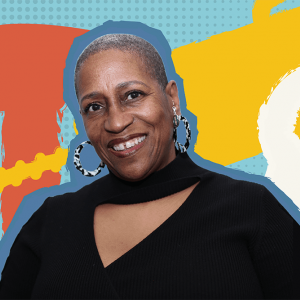
While I was attending seminary, I came across a book outside of our assigned texts that would help transform my thinking on LGBTQ+ inclusion in the church. The name of the book was Our Lives Matter: A Womanist Queer Theology, and the author of the book was womanist theologian Pamela R. Lightsey.
Up to that point in my life, I had been taught that being a Christian while also proudly identifying as a member of the LGBTQ+ community was impossible. But Lightsey’s Our Lives Matter challenged those preconceived notions as she argued for full LGBTQ+ celebration within the universal church. I began to realize that my discrimination was not only hurting LGBTQ+ people, it was also hindering my ability to imagine a world in which all people could be free. The lesson I took away from that book was this: If we don’t have the capacity to imagine a world in which LGBTQ+ people are free to be fully themselves, then our imagination of liberation is truncated.
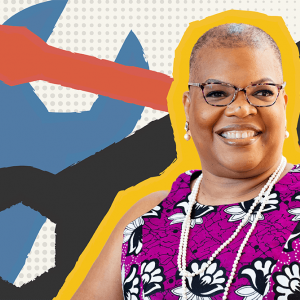
I remember the moment I became wholly dissatisfied with Christian conceptions of forgiveness. While walking into church for a Sunday morning class on the Lord’s Prayer, I realized that I did not know how to “forgive others” as God had forgiven me. Defining forgiveness as “moving past and forgetting harm” was vague and hard to fathom. I had repeatedly seen the powerful weaponize the instruction to “forgive” against the oppressed and abused: Black people told to “forgive” the U.S. for chattel slavery; women told to “forgive” husbands who abused them; survivors of sexual violence told to “forgive” the church. Surely, this was not the forgiveness Jesus instructed. But I couldn’t escape the feeling that “forgive” was still a command for Christians to follow.
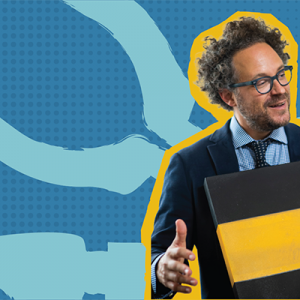
Growing up as a Christian in the U.S., I was told that Jesus came to die on the cross for our sins and establish the Christian religion. It’s embarrassing to admit, and stands as an example of the way in which casual antisemitism saturates Christianity, but it was not until my college years, after encountering Chagall, that I realized Jesus was distinctly Jewish and that Jews had been offering unique and refreshing ways to see Jesus throughout history.
Writer, art curator, and expert, Aaron Rosen is continuing that tradition, offering new ways to see Jesus from his context as a practicing Jew by inviting people to imagine Jesus as a visual thinker. Aptly titled What Would Jesus See, Rosen’s book encourages people of all backgrounds — Christian, Jewish, or no religion at all — to imagine “how Jesus saw, what he saw, and why this is important today.” The shift from “What would Jesus do?” to “What would Jesus see?” may seem like a way to deemphasize Jesus’ actions. But as Rosen writes: “For Jesus, seeing was doing. At the core of his short ministry was a recurring call to look at the world—and especially its most disadvantaged denizens—with new eyes.”

One of my favorite passages in the Bible is from in Isaiah 61:1: “The spirit of the Lord God is upon me, because the Lord has anointed me; he has sent me to bring good news to the oppressed, to bind up the brokenhearted, to proclaim liberty to the captives, and release to the prisoners.” Christians will be familiar with this passage as Jesus quotes it when he stands up to read in the synagogue during the early days of his ministry (Luke 4). It’s a passage that gives me some hope for Christianity, since the central character of our religion believed that even the worst-of-the-worst deserve forgiveness.

“We had a prayer meeting [Monday] morning with dozens and dozens of people from all different traditions, from bishops to people sitting in the pews,” Cannon told Sojourners. “We’ll have another prayer gathering on Wednesday morning. We’re grieving, we’re lamenting, and we’re also working really hard.”

In launching The Reconstruct, Sojourners’ newest newsletter, we hope to continue what we have been doing, but with more regularity: Offering thoughtful, constructive conversations with folks who are changing the world and reforming our faith.
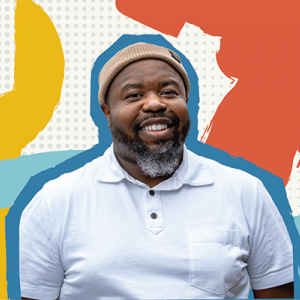
Ashon T. Crawley, author, artist, and professor of religious studies and African American and African studies at the University of Virginia, constructed a memorial for Black church choir directors who died during the U.S. HIV/AIDS crisis. The exhibit, “HOMEGOING,” told the story of the musicians who, as he puts it, “died within a kind of epistemological moment,” where to be a musician in the Black church was to be understood as gay, to be gay was to be understood as HIV-positive, and vice versa.